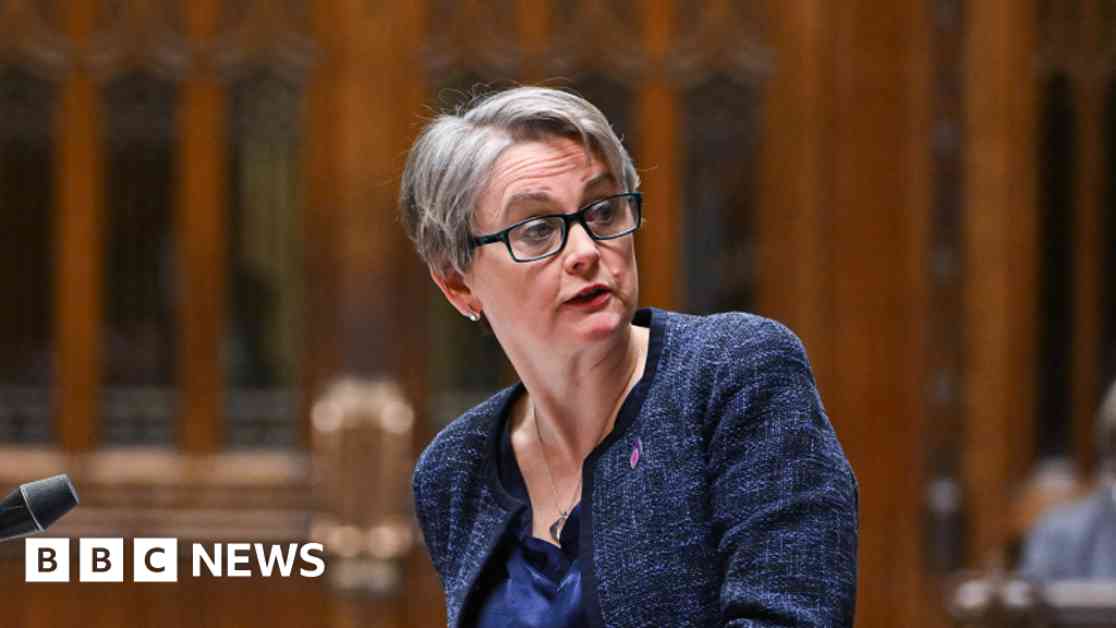Child exploitation and “cuckooing” are on the brink of being designated as distinct criminal offenses with the upcoming introduction of the Crime and Policing Bill to Parliament. This legislation aims to combat the insidious exploitation of vulnerable individuals, particularly children, by criminal elements who take over their homes for illicit activities like drug dealing. The Home Secretary, Yvette Cooper, has emphasized the urgent need to protect victims and prevent these hidden crimes from proliferating, labeling such exploitation as “sickening” and calling for robust legal measures to eradicate it from society.
Legislation to Combat Exploitation and Cuckooing
The concept of cuckooing, where criminals seize control of a vulnerable person’s residence to conduct illegal operations, poses a severe threat to community safety. Former heroin and cocaine user, Gennine Bird, highlighted the harrowing reality of cuckooing, describing instances of intimidation, physical violence, sexual assault, and coerced involvement in criminal activities. Her firsthand experience sheds light on the dark underbelly of this criminal practice, underscoring the need for stringent legal frameworks to address such atrocities.
Dr. Laura Bainbridge, an expert in criminal justice at Leeds University, has commended the proposed legislation for addressing the inconsistencies in current criminal and civil orders used against cuckooers. She emphasized the complexity of untangling victims from perpetrators in cuckooing scenarios, noting the unique challenges and nuances that each case presents. By enacting this new law, Dr. Bainbridge hopes to ensure that vulnerable individuals are safeguarded, not penalized, and that a collaborative multi-agency approach is adopted to tackle this multifaceted issue effectively.
Protecting Children from Criminal Exploitation
In addition to combating cuckooing, the Crime and Policing Bill seeks to tackle child criminal exploitation (CCE), targeting individuals who groom children for criminal activities like county lines drug dealing and organized robbery. This offense aims to address the alarming trend of children being coerced into illicit behavior, with around 14,500 children identified as at risk of CCE in the previous fiscal year. The government acknowledges that this figure likely underestimates the true extent of the problem, highlighting the urgency of robust legal measures to protect vulnerable children from exploitation.
The proposed legislation includes provisions for CCE prevention orders, allowing courts to impose restrictions on individuals deemed a risk of exploiting children for criminal purposes. Violating these orders will constitute a criminal offense, carrying a maximum penalty of five years in prison. Dame Rachel de Souza, the UK’s Children’s Commissioner, has praised these measures for providing clarity that exploited children are victims, not perpetrators. She advocates for a child-centric justice system that prioritizes safeguarding and amplifies the voices and experiences of vulnerable children to create a more inclusive and protective legal framework.
In a broader context, the Crime and Policing Bill also addresses the issue of spiking, introducing a new offense with a maximum prison term of up to 10 years. This prohibition aims to deter individuals from tampering with substances to harm or incapacitate others, reflecting the government’s commitment to safeguarding public health and safety.
By enacting these comprehensive legal reforms, the government demonstrates its unwavering commitment to protecting vulnerable individuals, especially children, from exploitation and criminal activities. The proposed legislation represents a significant step forward in addressing these complex societal challenges and ensuring that perpetrators face appropriate consequences for their harmful actions. As the bill progresses through Parliament, stakeholders and experts alike eagerly anticipate its implementation to enhance community safety and promote a more just and equitable society.













